BGMEA DAILY DIGEST
INTERNATIONAL NEWS
November 15, 2025
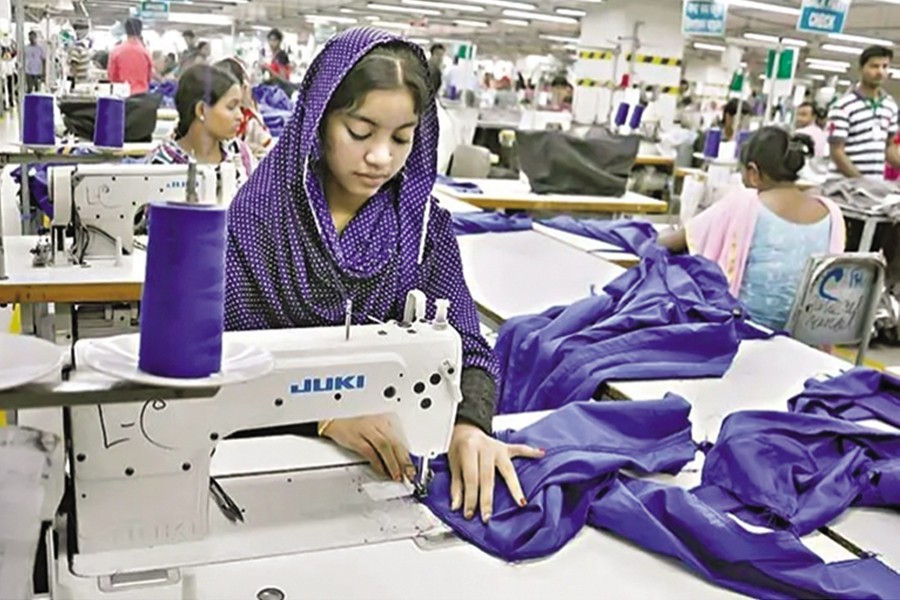
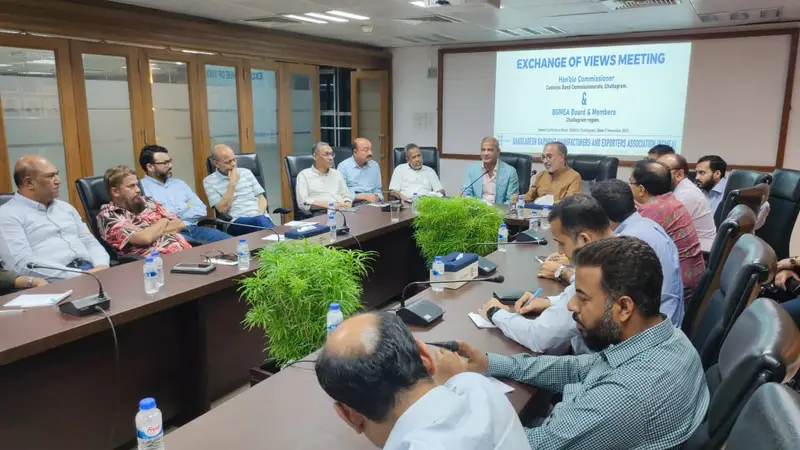
The Bangladesh Post
BGMEA seeks faster customs bond services to keep RMG sector competitive
Leaders of BGMEA’s Chattogram region have urged authorities to simplify and speed up customs bond services to help maintain the global competitiveness of Bangladesh’s ready-made garment (RMG) industry. The appeal was made at a view-exchange meeting held Tuesday evening at the BGMEA building in Chattogram with Chattogram Customs Bond Commissioner Md. Mahfuzul Haque Bhuiyan and senior officials. BGMEA Director M.A. Salam said traders in Chattogram are facing difficulties and expressed hope that these issues would be resolved under the commissioner’s leadership. BGMEA Vice-President Md. Rafiq Chowdhury requested speedy resolution of problems related to the revolving system for importing raw materials, faster approval of new IDFOBs and raw materials in bond licenses, simplification of annual audits, prevention of audit delays caused by weight-gauge-process-loss disputes, and an end to the imposition of 15% VAT on inter-bond transfers. BGMEA Directors Md. Saif Ullah Mansur, Rakibul Alam Chowdhury, Anjan Shekhar Das, Mohammad Musa, and several other senior leaders were present at the meeting.
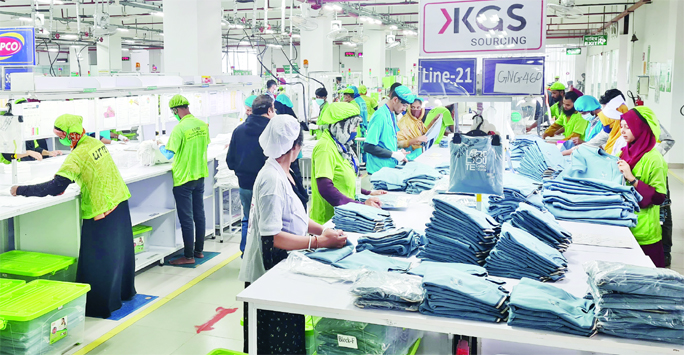
The New Nation
Factory closures, workers unrest, and competition in EU market
The export sector is particularly affected as Chinese exporters, facing high US tariffs, have aggressively targeted the EU market with low-priced products, leading to production slowdowns and declining shipments, industry insiders noted. Former BGMEA Director Mohiuddin Rubel highlighted that around 70–80 percent of Bangladesh’s RMG exports go to the US and EU. Yet, demand in these markets remains weak and unpredictable, while competitors like China and India have adopted aggressive marketing strategies, preventing Bangladesh from fully capitalizing on its advantages. Economic and political challenges at home, coupled with global volatility stemming from US tariffs, have further complicated the situation. Inamul Haq Khan, Senior Vice President between 5 August 2024 and 10 November 2025, said 182 factories across Savar, Gazipur, Chittagong, Narayanganj, Narsingdi, and other industrial hubs have been closed, leaving around 300,000 workers unemployed.
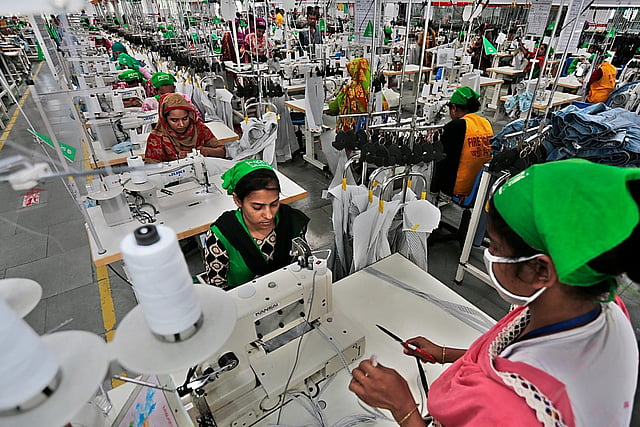
প্রথমআলো
ঠিকায় কাজ করা পোশাক কারখানাও প্রণোদনা পাবে
ঠিকায় কাজ করা বা সাব–কন্ট্রাক্টের মাধ্যমে উৎপাদিত ও রপ্তানি করা তৈরি পোশাক ও বস্ত্রজাত পণ্যের বিপরীতে রপ্তানিতে নগদ সহায়তা পাবে সংশ্লিষ্ট কারখানা। তবে উৎপাদনে জড়িত নয় এমন ট্রেডার বা ব্যবসাপ্রতিষ্ঠান এই সুবিধা পাবে না। শুধু নিজস্ব কারখানা আছে এমন প্রতিষ্ঠান এই সুবিধা পাবে। বাংলাদেশ ব্যাংক গত বুধবার জারি করা এক প্রজ্ঞাপনে এই নির্দেশনা দিয়েছে। নির্দেশনায় বলা হয়েছে, সরকারের সিদ্ধান্তের আলোকে বাংলাদেশ ব্যাংক এই সিদ্ধান্ত নিয়েছে। সাব-কন্ট্রাক্টিং প্রক্রিয়ার ক্ষেত্রে ‘তৈরি পোশাক শিল্পে সাব-কন্ট্রাক্টিং গাইডলাইন-২০১৯’ এবং ‘সরাসরি রপ্তানিমুখী পোশাকশিল্প প্রতিষ্ঠান (ওয়্যারহাউস পদ্ধতির আওতায় সাময়িক আমদানি, ওয়্যারহাউস পরিচালনা ও কার্যপদ্ধতি) বিধিমালা, ২০২৪’ অনুসরণ করতে হবে। রপ্তানিকারকেরা জানিয়েছেন, সরকারের নতুন এই সিদ্ধান্তে ‘ফাস্ট সেলস ফ্রেমওয়ার্ক’–এর আওতায় যুক্তরাষ্ট্রে রপ্তানি সহজ করবে। এই প্রক্রিয়ায় যুক্তরাষ্ট্রের বাজারে কম শুল্কে পোশাক রপ্তানি হবে।
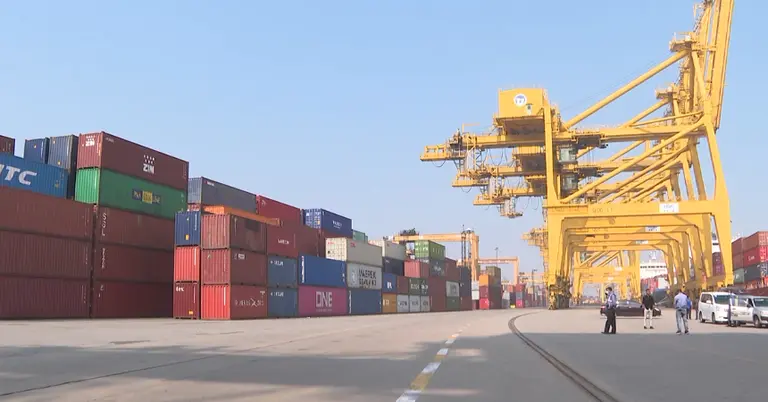
কালেরকন্ঠ
চট্টগ্রাম বন্দরে হাইকোর্টের নির্দেশ উপেক্ষিত: বর্ধিত মাশুল বহাল বিপাকে আমদানিকারক ও ব্যবসায়ীরা
চট্টগ্রাম বন্দরের ৫২টি সেবার বিপরীতে বর্ধিত মাশুল গড়ে ৪১ শতাংশ বাড়ানো হয়েছিল। কোনো কোনো ক্ষেত্রে তা বাড়ানো হয় চার গুণ। এই বাড়তি মাশুল আদায় বন্ধে হাইকোর্ট এক মাসের স্থগিতাদেশ দিয়েছেন। এই স্থগিতাদেশ গতকাল পর্যন্ত পাঁচ দিনেও কার্যকর করা হয়নি। ফলে অতিরিক্ত মাশুল দিয়েই বন্দরের সেবা নিতে বাধ্য হচ্ছেন আমদানিকারক ও ব্যবসায়ীরা। বন্দর কর্তৃপক্ষ বলছে, তারা এখনো হাইকোর্টের আদেশের কোনো লিখিত কপি হাতে পায়নি। তাই এটি কার্যকর করা সম্ভব হয়নি। একই সঙ্গে হাইকোর্টের আদেশের বিরুদ্ধে আপিল করা হতে পারে বলে বন্দর কর্তৃপক্ষ সূত্রে জানা গেছে। তবে তৈরি পোশাক প্রস্তুতকারক ও রপ্তানিকারকদের সংগঠন বিজিএমইএ বর্ধিত মাশুল পুনর্বিবেচনার আহবান জানিয়ে নৌপরিবহন উপদেষ্টার কাছে চিঠি দিয়েছে।

The Financial Express
Bangladesh-China sea trade thrives on rare 'empty box' model
Bangladesh's ocean-going trade with China is expanding at an unexpectedly rapid pace despite a striking overall imbalance with the volume of shipments bound for China being very low. The model is so unusual that shipping executives describe it as a rare exception to industry norms. Yet, carriers are still adding vessels and capacity to meet Bangladesh's growing appetite for Chinese imports.